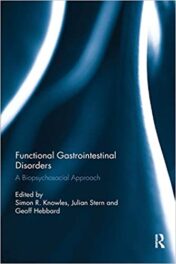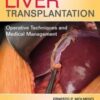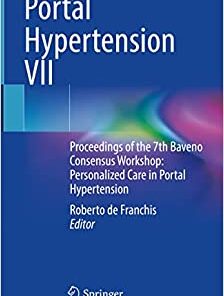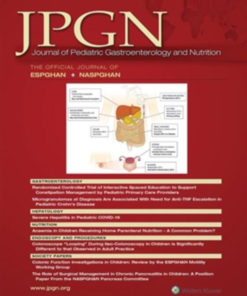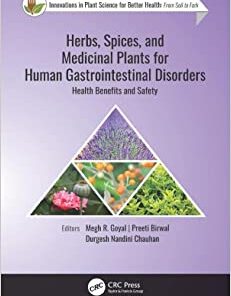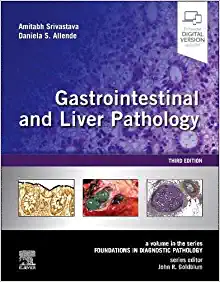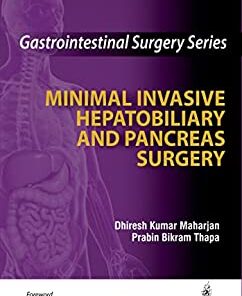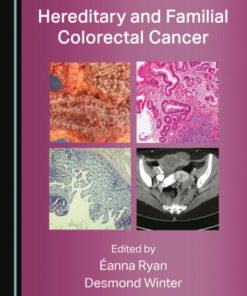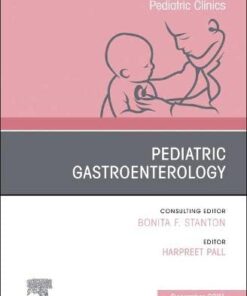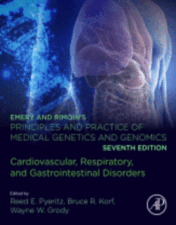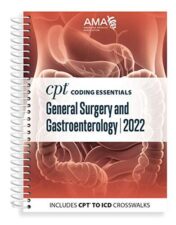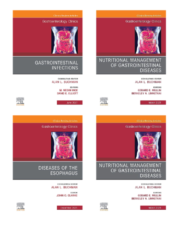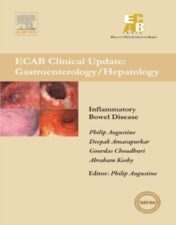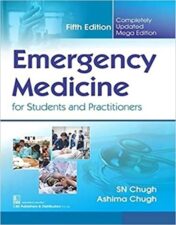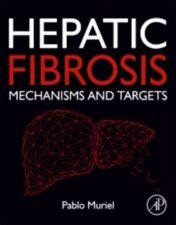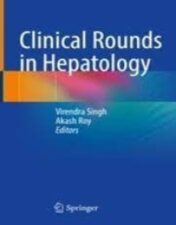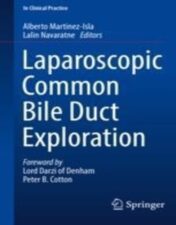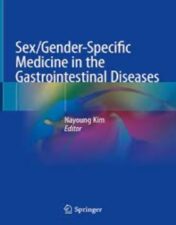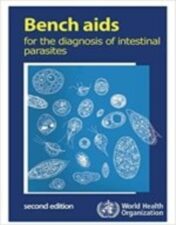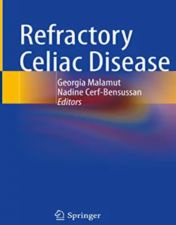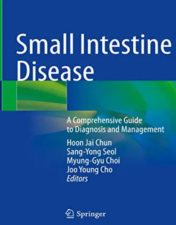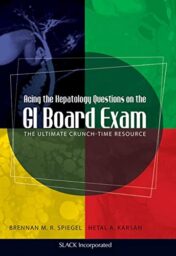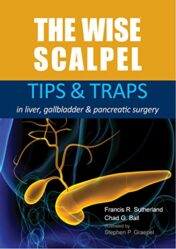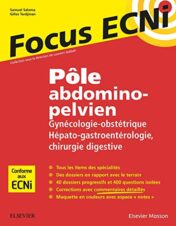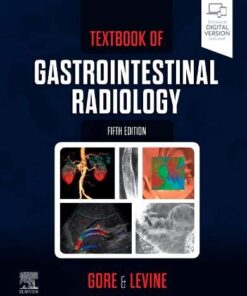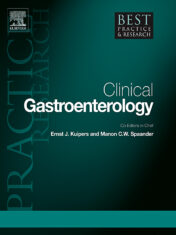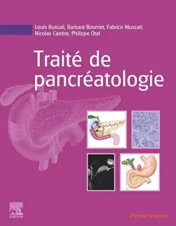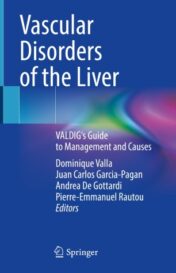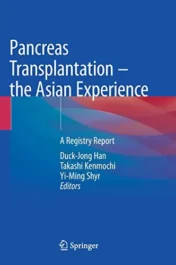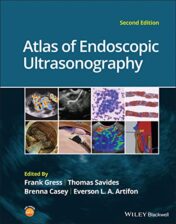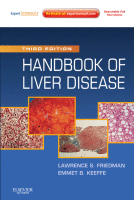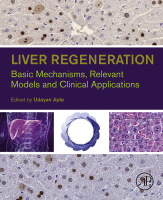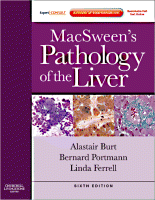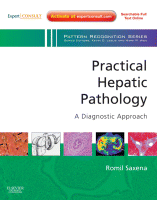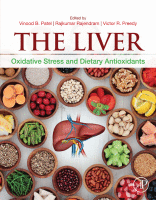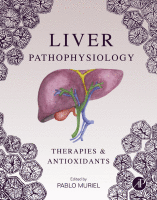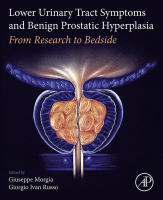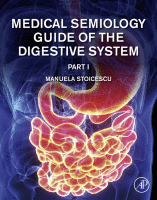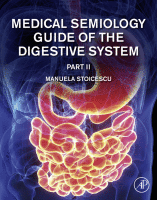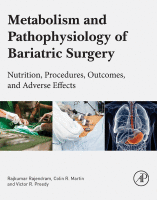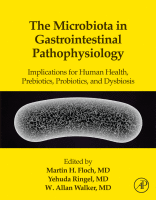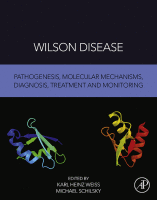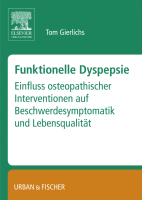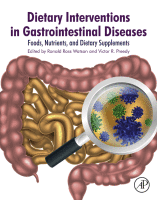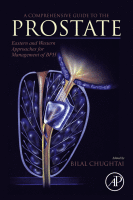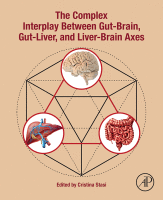Functional Gastrointestinal Disorders: A biopsychosocial approach original pdf
$15
Functional Gastrointestinal Disorders: A biopsychosocial approach original pdf
This book brings together world experts in the field of Functional Gastrointestinal Disorders (FGIDs) who practice an integrated and holistic approach in their care for patients to provide an up-to-date and comprehensive evaluation of a range of issues associated with the biopsychosocial treatment of FGIDs. Examining topics such as neurological and biological aspects of FGIDs, common concerns faced in relation to diagnosis, and ongoing medical decisions and interventions, each chapter provides crucial practical recommendations, as well as future directions of psychosocial work in multi-team environments.
Functional Gastrointestinal Disorders considers individual conditions in detail, including the current Rome IV diagnostic criteria for FGIDs required to make a positive diagnosis, the role of psychological and other biopsychosocial and biofeedback aspects of treatment, and general recommendations with regard to diet and medications. Each chapter also provides an up-to-date consolidation and evaluation of the current literature as well as practical recommendations, which can then be applied by the reader in their own interaction with FGID patients. Topics covered include:
-
- the common concerns and issues faced by individuals with FGIDs in relation to pre-and post-diagnosis, ongoing medical decisions and interventions
-
- review of current evidence-based biopsychosocial treatment practices for each FGID condition
-
- the differences and challenges associated with FGIDs across individual life stages
-
- special topics such as the relationship with eating disorders and the role of psychotropic medications
-
- modern patient centred initiatives such as patient empowerment, distance and e-therapies
-
- the future challenges facing FGID treatment.
Throughout the entire book, common themes and practical recommendations are described. Functional Gastrointestinal Disorders, has broad applicability across multiple spheres, including treatment, research and teaching and is accessible to those working in gastroenterology and primary care alike
Related Products
GASTROENTEROLOGY & HEPATOLOGY BOOKS
GASTROENTEROLOGY & HEPATOLOGY BOOKS
Journal of Pediatric Gastroenterology & Nutrition 2022 Archive (True PDF)
GASTROENTEROLOGY & HEPATOLOGY BOOKS
GASTROENTEROLOGY & HEPATOLOGY BOOKS
GASTROENTEROLOGY & HEPATOLOGY BOOKS
Non-Umbilical Laparoscopic Entry Ports (Original PDF from Publisher)
GASTROENTEROLOGY & HEPATOLOGY BOOKS
GASTROENTEROLOGY & HEPATOLOGY BOOKS
GASTROENTEROLOGY & HEPATOLOGY BOOKS
The Gut Microbiome: Bench to Table (Original PDF from Publisher)
GASTROENTEROLOGY & HEPATOLOGY BOOKS
GASTROENTEROLOGY & HEPATOLOGY BOOKS
Hereditary and Familial Colorectal Cancer (Original PDF from Publisher)
GASTROENTEROLOGY & HEPATOLOGY BOOKS
GASTROENTEROLOGY & HEPATOLOGY BOOKS
Handbook of Gastroenterologic Procedures, 5th Edition 2020 Original PDF
GASTROENTEROLOGY & HEPATOLOGY BOOKS
GASTROENTEROLOGY & HEPATOLOGY BOOKS
CPT Coding Essentials for General Surgery and Gastroenterology 2022 Epub+ converted pdf
GASTROENTEROLOGY & HEPATOLOGY BOOKS
GASTROENTEROLOGY & HEPATOLOGY BOOKS
CPT Coding Essentials for General Surgery and Gastroenterology 2021 Original PDF
GASTROENTEROLOGY & HEPATOLOGY BOOKS
GASTROENTEROLOGY & HEPATOLOGY BOOKS
Gastroenterology Clinics of North America 2021 Full Archives True PDF
GASTROENTEROLOGY & HEPATOLOGY BOOKS
GASTROENTEROLOGY & HEPATOLOGY BOOKS
GASTROENTEROLOGY & HEPATOLOGY BOOKS
The Digestive System: Systems of the Body Series, 3rd edition 2022 Original PDF
GASTROENTEROLOGY & HEPATOLOGY BOOKS
GASTROENTEROLOGY & HEPATOLOGY BOOKS
GASTROENTEROLOGY & HEPATOLOGY BOOKS
GASTROENTEROLOGY & HEPATOLOGY BOOKS
GASTROENTEROLOGY & HEPATOLOGY BOOKS
GASTROENTEROLOGY & HEPATOLOGY BOOKS
GASTROENTEROLOGY & HEPATOLOGY BOOKS
GASTROENTEROLOGY & HEPATOLOGY BOOKS
Management of Inpatient Inflammatory Bowel Disease A Comprehensive Handbook 2022 Original pdf
GASTROENTEROLOGY & HEPATOLOGY BOOKS
GASTROENTEROLOGY & HEPATOLOGY BOOKS
Interpretation of Endoscopic Biopsy – Gastritis, Gastropathies and Beyond 2022 Original pdf
GASTROENTEROLOGY & HEPATOLOGY BOOKS
GASTROENTEROLOGY & HEPATOLOGY BOOKS
Sex/Gender-Specific Medicine in the Gastrointestinal Diseases 2022 Original pdf
GASTROENTEROLOGY & HEPATOLOGY BOOKS
GASTROENTEROLOGY & HEPATOLOGY BOOKS
Bench Aids for the Diagnosis of Intestinal Parasites 2nd Ed 2019 Original pdf
GASTROENTEROLOGY & HEPATOLOGY BOOKS
GASTROENTEROLOGY & HEPATOLOGY BOOKS
Small Intestine Disease: A Comprehensive Guide to Diagnosis and Management 2022 Original PDF
GASTROENTEROLOGY & HEPATOLOGY BOOKS
Successful Training in Gastrointestinal Endoscopy, 2nd Edition 2022 Original PDF
GASTROENTEROLOGY & HEPATOLOGY BOOKS
GASTROENTEROLOGY & HEPATOLOGY BOOKS
The Wise Scalpel: Tips & Traps in liver, gallbladder & pancreatic surgery 2022 Original PDF
GASTROENTEROLOGY & HEPATOLOGY BOOKS
GASTROENTEROLOGY & HEPATOLOGY BOOKS
Textbook of Gastrointestinal Radiology, 5th Edition 2021 Videos
GASTROENTEROLOGY & HEPATOLOGY BOOKS
Encyclopedia of Gastroenterology, 2nd Edition 2019 Original PDF
GASTROENTEROLOGY & HEPATOLOGY BOOKS
Tuberculosis of the Gastrointestinal system 2022 Original PDF
GASTROENTEROLOGY & HEPATOLOGY BOOKS
Yamada’s Atlas of Gastroenterology, 6th Edition 2022 Original PDF
GASTROENTEROLOGY & HEPATOLOGY BOOKS
GASTROENTEROLOGY & HEPATOLOGY BOOKS
Current Topics in Gastrointestinal and Liver Pathology 2022 CME VIDEOS
GASTROENTEROLOGY & HEPATOLOGY BOOKS
Yamada’s Textbook of Gastroenterology, 7th Edition 2022 Original PDF
GASTROENTEROLOGY & HEPATOLOGY BOOKS
GASTROENTEROLOGY & HEPATOLOGY BOOKS
Best Practice ; Research Clinical Gastroenterology 2021 Full Archives True PDF
GASTROENTEROLOGY & HEPATOLOGY BOOKS
Clinics and Research in Hepatology and Gastroenterology 2021 Full Archives True PDF
GASTROENTEROLOGY & HEPATOLOGY BOOKS
GASTROENTEROLOGY & HEPATOLOGY BOOKS
GASTROENTEROLOGY & HEPATOLOGY BOOKS
Simplified Laparoscopic Hysterectomy: Practical, Safe and Economic Methodology 2018 Original PDF
GASTROENTEROLOGY & HEPATOLOGY BOOKS
Textbook and Atlas of Laparoscopic Hysterectomy 2016 Original PDF
GASTROENTEROLOGY & HEPATOLOGY BOOKS
Vascular Disorders of the Liver VALDIG’s Guide to Management and Causes 2021 Original pdf
GASTROENTEROLOGY & HEPATOLOGY BOOKS
Pancreas Transplantation – the Asian Experience: A Registry Report 2021 Original PDF
GASTROENTEROLOGY & HEPATOLOGY BOOKS
American journal of gastroenterology 2021 full archives true pdf
GASTROENTEROLOGY & HEPATOLOGY BOOKS
The ASCRS Textbook of Colon and Rectal Surgery 4th ed 2022 Original PDF+Video’s
GASTROENTEROLOGY & HEPATOLOGY BOOKS
Current and Future Developments in Surgery Volume 2: Oesophago-gastric Surgery 2018 Original pdf
GASTROENTEROLOGY & HEPATOLOGY BOOKS
Current and Future Developments in Surgery Volume 1: Oesophago-gastric Surgery 2018 Original pdf
GASTROENTEROLOGY & HEPATOLOGY BOOKS
Curbside Consultation in IBD: 49 Clinical Questions 2021 Original pdf
GASTROENTEROLOGY & HEPATOLOGY BOOKS
Atlas of Endoscopic Ultrasonography, 2nd Edition 2021 Original pdf
GASTROENTEROLOGY & HEPATOLOGY BOOKS
Foundations of Colorectal Cancer 1st Edition 2021 Original pdf
GASTROENTEROLOGY & HEPATOLOGY BOOKS
Atlas of Endoscopic Ultrasonography 2nd Ed 2021 epub+converted pdf
GASTROENTEROLOGY & HEPATOLOGY BOOKS
GASTROENTEROLOGY & HEPATOLOGY BOOKS
Clinical Cases in Hepatology: Principles and Practice 1st ed 2021 Original pdf
GASTROENTEROLOGY & HEPATOLOGY BOOKS
Blumgart’s Surgery of the Liver, Pancreas and Biliary Tract 2012 Original pdf
GASTROENTEROLOGY & HEPATOLOGY BOOKS
GASTROENTEROLOGY & HEPATOLOGY BOOKS
GASTROENTEROLOGY & HEPATOLOGY BOOKS
GASTROENTEROLOGY & HEPATOLOGY BOOKS
GASTROENTEROLOGY & HEPATOLOGY BOOKS
Liver Regeneration Basic Mechanisms, Relevant Models and Clinical Applications 2016 Original pdf
GASTROENTEROLOGY & HEPATOLOGY BOOKS
GASTROENTEROLOGY & HEPATOLOGY BOOKS
Practical Hepatic Pathology: A Diagnostic Approach 2011 Original pdf
GASTROENTEROLOGY & HEPATOLOGY BOOKS
GASTROENTEROLOGY & HEPATOLOGY BOOKS
GASTROENTEROLOGY & HEPATOLOGY BOOKS
GASTROENTEROLOGY & HEPATOLOGY BOOKS
The Liver Oxidative Stress and Dietary Antioxidants 2018 Original pdf
GASTROENTEROLOGY & HEPATOLOGY BOOKS
Liver Pathophysiology Therapies and Antioxidants 20107 Original pdf
GASTROENTEROLOGY & HEPATOLOGY BOOKS
GASTROENTEROLOGY & HEPATOLOGY BOOKS
Medical Semiology Guide of the Digestive System Part 1 2020 Original pdf
GASTROENTEROLOGY & HEPATOLOGY BOOKS
Medical Semiology Guide of the Digestive System Part II 2020 Original pdf
GASTROENTEROLOGY & HEPATOLOGY BOOKS
GASTROENTEROLOGY & HEPATOLOGY BOOKS
The Microbiota in Gastrointestinal Pathophysiology 2017 Original pdf
GASTROENTEROLOGY & HEPATOLOGY BOOKS
Research and Clinical Applications of Targeting Gastric Neoplasms 2021 Original pdf
GASTROENTEROLOGY & HEPATOLOGY BOOKS
GASTROENTEROLOGY & HEPATOLOGY BOOKS
Therapie-Handbuch – Gastroenterologie und Hepatologie 2021 Original pdf
GASTROENTEROLOGY & HEPATOLOGY BOOKS
GASTROENTEROLOGY & HEPATOLOGY BOOKS
GASTROENTEROLOGY & HEPATOLOGY BOOKS
GASTROENTEROLOGY & HEPATOLOGY BOOKS
GASTROENTEROLOGY & HEPATOLOGY BOOKS
Dietary Interventions in Liver Disease Foods, Nutrients, and Dietary Supplements 2019 Original pdf
GASTROENTEROLOGY & HEPATOLOGY BOOKS
GASTROENTEROLOGY & HEPATOLOGY BOOKS
GASTROENTEROLOGY & HEPATOLOGY BOOKS
GASTROENTEROLOGY & HEPATOLOGY BOOKS
The Complex Interplay Between Gut-Brain, Gut-Liver, and Liver-Brain Axes 2021 Original pdf

